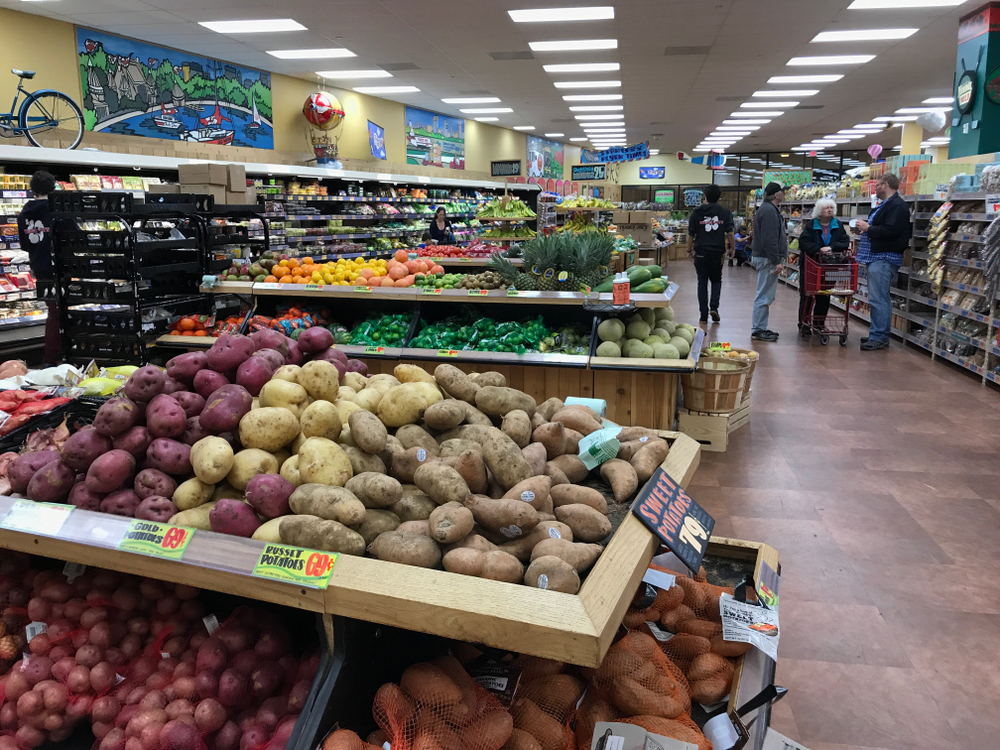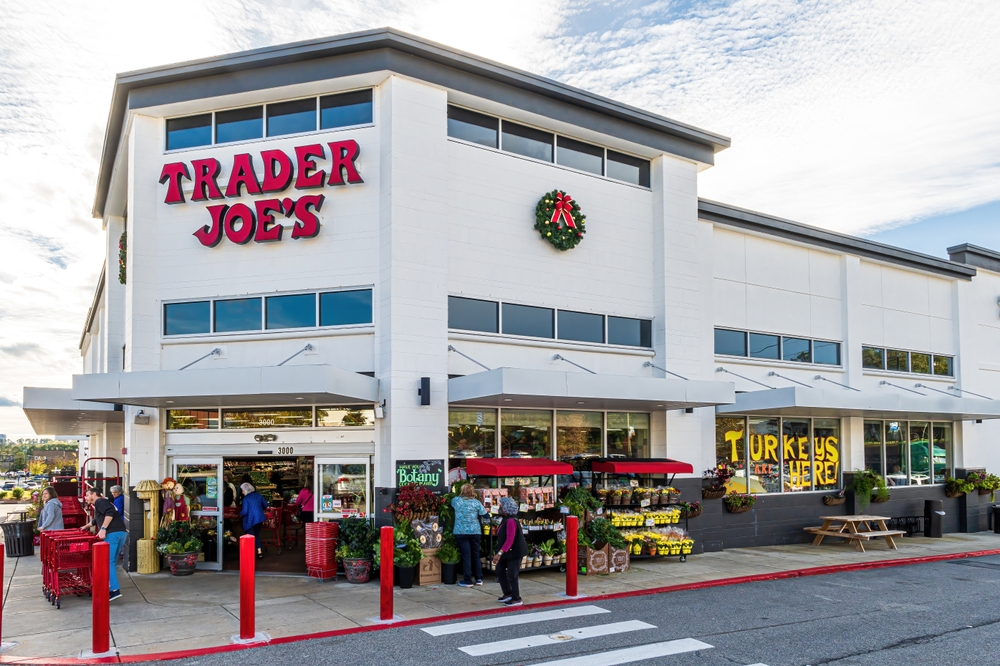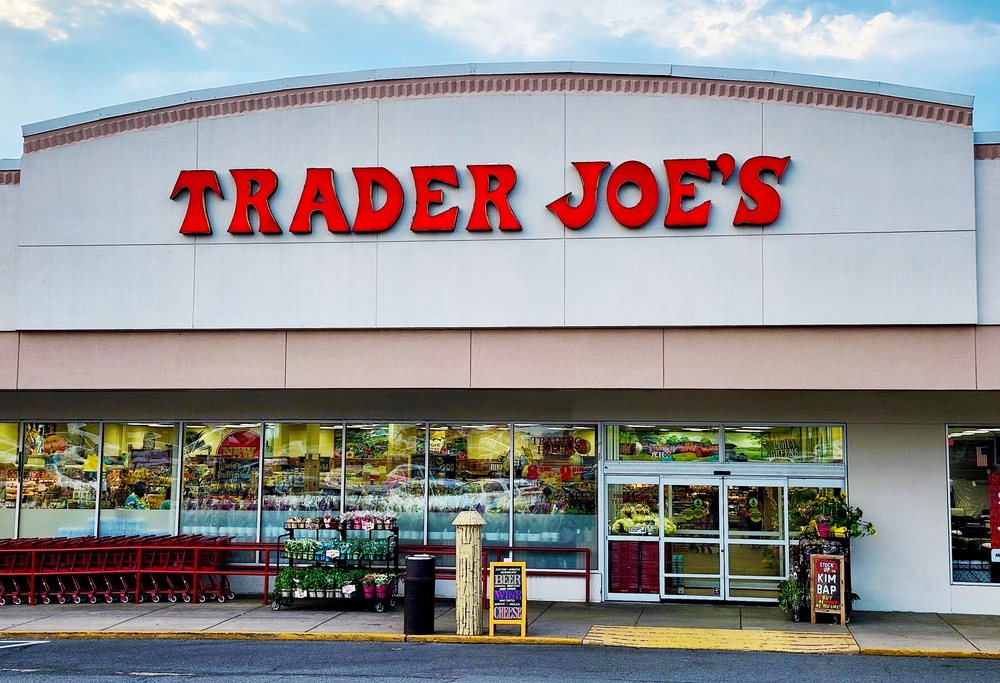Trader Joe’s Donates ‘100%’ of Unsold Products Every Day, Gave Away 98 Million Pounds

Walk into any grocery store at the end of the night and you’ll find a quiet tragedy. Perfectly edible food, stacked in backrooms or tossed into bins, not because it wasn’t good, but because it wasn’t bought. That bag of apples, those loaves of bread, the yogurt set to expire tomorrow—all destined for the trash, while beyond the store’s walls, families wonder how they’ll afford their next meal. It’s a contradiction that defines modern abundance: waste living side by side with want. And while many of us are guilty of brushing this reality aside, chalking it up to “just the way things are,” companies like Trader Joe’s are daring to disrupt the narrative by asking: what if waste doesn’t have to exist at all?
Trader Joe’s is rewriting that story in a way that feels both radical and deeply practical. Instead of sending unsold goods to landfills, they’ve built a daily promise: to donate every item that is safe to eat, no exceptions. Through their Neighborhood Shares program, each of the company’s 579 stores contributes what doesn’t sell to local food banks, shelters, and hunger-relief groups. The result in 2024 alone was staggering—98 million pounds of food redistributed to more than 2,000 nonprofit partners, including City Harvest and Sharing Excess. Imagine what that means in human terms: tens of millions of meals given freely to people who might otherwise go hungry. In a world where hunger often feels like an unsolvable puzzle, Trader Joe’s demonstrates that radical generosity paired with simple logistics can turn waste into nourishment, transforming an industry standard into an industry challenge.

Why This Matters More Than You Think
The numbers tell a story, but the deeper truth lies in what those numbers mean. Hunger is not some abstract issue tucked away in far-off corners of the world—it’s here, woven into the lives of millions of people across the United States. According to Feeding America, more than 44 million Americans, including 13 million children, struggle with food insecurity every single day. Think about what that means: kids unable to focus in school because they’re hungry, parents skipping meals so their children can eat, elderly neighbors cutting pills in half to afford groceries. Every donated apple or loaf of bread is more than calories; it’s dignity, relief, and proof that someone cares. Trader Joe’s isn’t solving hunger entirely, but they are proving that business practices can align with human need in a way that honors both responsibility and compassion.
On a broader level, food waste is one of the most invisible yet damaging environmental problems we face. When food rots in landfills, it produces methane, a greenhouse gas far more potent than carbon dioxide in the short term. The resources used to grow, transport, and package that wasted food—water, labor, energy, fuel—all vanish into nothingness the moment food is discarded. By redirecting nearly 100 million pounds of food, Trader Joe’s isn’t just filling stomachs; they’re cutting down on waste that fuels climate change. To put it into perspective, Project Drawdown, a leading climate solutions research group, ranks reducing food waste among the top strategies for combating global warming. This means Trader Joe’s donations aren’t just an act of charity—they are also a meaningful contribution to climate action.
And then there’s the cultural shift. When a retailer as big as Trader Joe’s commits to a zero-waste donation model, it challenges competitors and consumers alike to rethink their own standards. Waste no longer looks like “the cost of doing business.” Instead, it becomes a moral question: if a company can donate every day, what excuse does anyone else have not to? This reframing sparks a ripple effect that reaches beyond Trader Joe’s, influencing industry norms and shaping public expectations. When one company proves that generosity and profitability can coexist, others can no longer pretend it’s impossible. What begins as a corporate decision evolves into a cultural awakening, where waste is no longer tolerated as inevitable.

Not Everything Is Perfect—There Are Challenges & Limits
For all the hope this program represents, it’s important to recognize the obstacles. Food donation isn’t as simple as handing over boxes at the end of the day; it requires meticulous attention to safety. Refrigerated items must stay cold. Fresh produce must be handled with care. Bread that’s edible tonight might not be tomorrow. Trader Joe’s has to ensure that everything leaving their stores through Neighborhood Shares maintains quality and safety, because the goal isn’t just to donate food—it’s to donate food people can actually trust and consume. This kind of rigor is vital, because no act of generosity can succeed if it compromises the well-being of those it seeks to help.
The logistics can also be daunting. Every store needs reliable nonprofit partners who have the staff, vehicles, and storage capacity to pick up food daily. In rural or underserved areas, such partners may not exist in sufficient numbers. That means some communities might not see the full benefit, even though the system is in place. This isn’t about lack of goodwill but about the gaps in infrastructure that still need addressing. Without consistent pickup and distribution, food that could have fed people risks slipping back into waste. Closing those gaps will require investments not just from companies but from cities, states, and governments committed to ending hunger.
And then there’s the question of equity. What qualifies as “fit for donation” can sometimes mean people receive food that’s less fresh or less diverse than what shoppers buy off the shelves. While any food is better than no food, hunger relief should also aim at dignity—giving people the chance to eat well, not just to get by. The challenge is not only in quantity but in quality, ensuring that donations reflect care rather than convenience. Trader Joe’s has made a remarkable start, but as a society, we must look beyond survival toward systems that ensure everyone has access to healthy, culturally appropriate, and fulfilling meals. To end hunger with dignity means thinking about more than calories—it means nourishing the soul as well as the body.

What We Can Learn—and What You Can Do
Trader Joe’s story isn’t meant to make us clap and move on; it’s a mirror reflecting our own choices. Waste doesn’t just happen in grocery stores—it happens in our kitchens, our fridges, and our lives. Studies estimate that the average American household wastes nearly one-third of the food it buys. That half-eaten salad, the expired milk, the forgotten leftovers—they add up, both financially and environmentally. If companies can rethink waste, so can we, on a personal scale. Each of us plays a part in creating the culture of consumption that leads to waste, which means each of us also has the power to shift it.
For the individual, small shifts matter. Planning meals, buying only what you need, and storing food properly can drastically cut down on waste. Food-sharing apps and community fridges now make it easier to redirect surplus food to someone else who can use it. Businesses can adopt similar practices, forging partnerships with nonprofits or investing in systems that ensure safe, regular donation. Policy-makers, too, can step in with tax incentives for companies that donate or by funding infrastructure like refrigerated trucks and warehouse space to make donation more feasible. The beauty of this issue is that solutions exist at every level, from the kitchen counter to the legislative floor.
The point is this: Trader Joe’s may be the headline, but the underlying lesson belongs to all of us. Waste is not destiny; it’s a choice. And every choice we make—to save, to share, to plan—can ripple outward into something greater than ourselves. The ripple of a single choice might feel small, but multiplied by millions, it becomes a wave. Trader Joe’s has shown that waves of generosity can be built with simple, consistent acts, and we have the chance to carry that same spirit into our daily lives.

Reflection: Because You Are Part of This Story
Look at what this one company achieved in a single year: 98 million pounds of food, redirected to nourish rather than rot. That’s not just corporate policy—it’s human lives changed, one meal at a time. But the bigger revelation is that waste, in all its forms, is not inevitable. Whether it’s food, time, or potential, what we let slip away often has untapped value waiting to be rediscovered. Trader Joe’s took what was invisible—the hidden loss of food—and made it visible by transforming it into care, proving that abundance isn’t the problem; it’s how we choose to distribute it.
So take this as more than news. Take it as an invitation. The next time you see something headed for the trash, ask yourself: could this be of use to someone else? Could it feed, help, inspire, or comfort? Trader Joe’s shows us that the answer is often yes, if we’re willing to look deeper. Their example is proof that change doesn’t always start with sweeping reforms; sometimes it begins with something as simple as giving away what would have been wasted. When one act of generosity becomes a habit, it starts to shift the culture from scarcity to abundance.
This is where the personal becomes universal. In your own life, you have the power to treat waste not as the end of the story but as the beginning of transformation. And when we collectively choose to honor that principle, we discover that abundance was never the problem—it was always our perspective. Trader Joe’s has chosen a new perspective. Now it’s on us to do the same. The story doesn’t end here; it begins every time someone decides that nothing worth having should be thrown away when it can still bring life, hope, and nourishment.
Loading...

